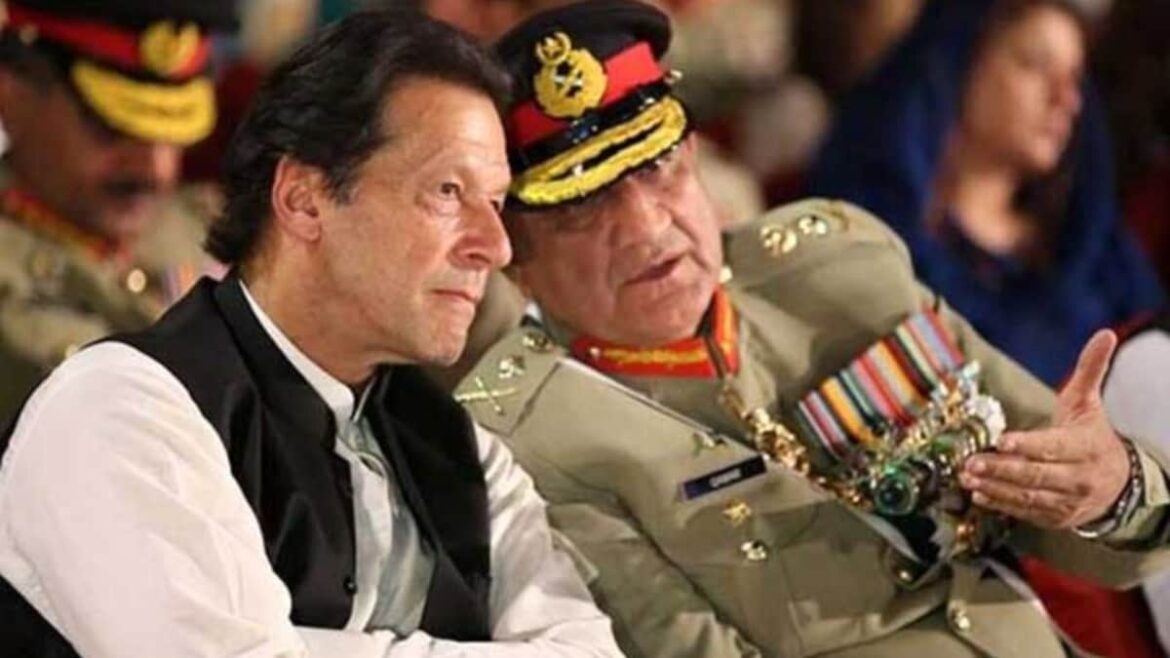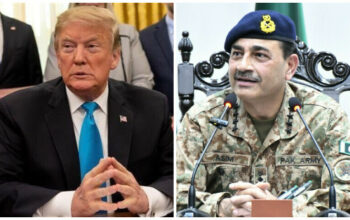Khan will rile up his foes. Khan will fight with all his might. Khan will do all it takes to stage a comeback. If you find it damaging to your polity, rest assured that is incidental.
By Ahmer Kureishi
For former Prime Minister Imran Khan, the world revolves around who the next army chief will be and who gets to name him to the office. At least, that is the impression you get if you pay attention to what he has been saying over the last several days.
The question is why? The Constitution is clear enough. The appointment of the Chief of Army Staff (COAS), the top command position in the Pakistan Army, is the exclusive prerogative of the prime minister.
The formal notification of the appointment is issued by the President, who is the Supreme Commander of the armed forces of Pakistan – on the advice of the prime minister.
Under the Constitution, the prime minister gets to name the next army chief when an incumbent nears the completion of his three-year term. Also, he may extend an incumbent army chief’s term.
Gen Qamar Javed Bajwa, the current COAS, was named to the office by the then Prime Minister Nawaz Sharif on November 29, 2016.
On the completion of his three-year term, he was granted an extension for another three years on November 29, 2019 by the then Prime Minister Imran Khan, under a law enacted expressly for this purpose.
The law was breezed through hte Parliament with full support from today’s opposition parties including Sharif’s Pakistan Muslim League – Nawaz (PML-N) and former President Asif Zardari’s Pakistan Peoples Party (PPP).
Gen Bajwa’s is set to complete his extended term on November 28, 2022 – meaning Pakistan needs a new COAS as of November 29, 2022. Naming the next chief is hands down up to Shehbaz Sharif, the sitting Prime Minister.
And here we have former Prime Minister Imran Khan hell bent on not letting the prime minister name the next army chief – accusing the political leadership of the Pakistan Democratic Movement (PDM) of plotting to bring in a favourite.
This has given rise to all kinds of guessing games in particular by those hoping to benefit by the appointment of one or the other of the probables.
Under the law and tradition, the next chief will be picked from among the three-star generals due for elevation to four-star rank. The ministry of defence prepares a summary for the prime minister’s consideration, listing the names of the generals eligible for the appointment.
Beyond that point, it is the sole discretion of the Prime Minister to pick the next chief from the list. Nothing in the Constitution says the prime minister should listen to or consult any opposition leader. Why, then, is Khan insisting on denying this right to the prime minister?
The answer is both complicated and obvious. Although the prime minister’s nominee under the Constitution, the COAS can make or break a prime minister in the extra-constitutional paradigm shaped by decades of the military’s dominance of politics.
Sharif, who named Gen Bajwa to the office of the COAS, was shown the door under an extra-constitutional arrangement that had the blessing of the latter.
What is more, Khan knows full well that there was no way he could have won the 2018 election without Gen Bajwa’s backing – nor could he have been ousted from power had that backing continued.
Khan must be privately cursing himself for mismanaging his ties with the top soldier, but can you really blame him for having a strong opinion as to who Gen Bajwa’s successor would be? He was only worrying about the longevity of his government.
But things went bad, and now he knows for certain that an incumbent army chief, despite being on his way out, is vastly preferable to a probable future army chief as an ally – not least because there’s many a slip ’twixt the cup and the lip.
But now he has no control over who the next army chief would be, and one of the top probables is the very man he booted from the leadership of the premier Inter-Services Intelligence (ISI) agency after the latter brought up the matter of Khan’s wife accepting lucrative gifts from realty tycoon Malik Riaz Hussain.
In a word, the deck is stacked against Khan. Another person might have considered conceding. Khan, being a fighter, thinks of a push back. The thing to do is to drive a wedge between the military and the civil leadership over the coming appointment.
If any among the readers think Khan would flinch from such a course of action, a polite reminder that his chief of staff is already facing charges of incitement to mutiny.
It also looks right at another level, because a wedge between him and the military was precisely what became the undoing of Khan’s government, allowing his political foes to overthrow him in a constitutionally sacrosanct vote of no confidence; a wedge – although driven by himself rather than his foes.
One of Khan’s problems is that he is on uncharted territory. Never in the history of the country has a politician tried to drag sensitive military appointments into politics. He has only his instinct to go by, and it has served him well up until now.
It does not help either that the Pakistan Army has less than two dozen three-star generals at any given moment, who are considered the creme de la creme of the institution. Pointing out any one of them as less competent, professional, or patriotic than the rest risks alienating all of them.
Which is to say, Khan is unlikely to badmouth any of the probables – quite contrary to his general approach. His bet, then, is on raking enough muck to force his opponents into an error, souring its ties with the military.
He has said things people construed to mean he is open to the government allowing Gen Bajwa another extension with a view to deferring the appointment of the next chief until after the general election.
He then clarified that he had not said any such thing. But how does he propose to defer the decision? He would not say. Will he openly advocate for one of the probables? Unlikely. Will he openly oppose any? Even more unlikely.
What he will do is keep flogging a dead horse until the government makes an error. A pretty desperate strategy given the situation, but it seems that’s all there is to it. Khan will play his mind games.
Copyright © 2021 Independent Pakistan | All rights reserved




